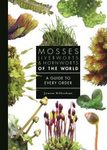"[Life's Engines] is full of surprises [...] [I]mmensely rewarding."
– Tim Flannery, New York Review of Books
"Entertaining, easy-to-read and historically rich."
– Adrian Wolfson, Nature
"Personal stories, hard facts, and illuminative illustrations each contribute to this engaging examination of our microbial overlords [...] Paul Falkowski's decades of study in various earth and life sciences fuel this excellent addition [...] Falkowski effectively uses analogies to convey abstract and complicated ideas."
– Rachel Jagareski, Foreword Reviews
"Falkowski's loving examination sets out, life on this planet is organized by and for bacteria – the rest of us are just along for the ride."
– Brian Bethune, Macleans
"Falkowski brings a formidable breadth of scientific understanding to the task of explaining this, having worked as a biologist, an oceanographer and an astrobiologist. He moves easily between biological and earth sciences to help us understand the steps microscopic single-celled organisms took to make the planet habitable."
– Cosmos
"[The] wonderful and awe-inspiring universe of the microbes, unseen creatures that have shaped the planet such that we may live in it, is engagingly presented by Paul Falkowski in a remarkable text entitled Life's Engines [...] The book's success is its utter simplicity. It tells the story of the history of life on our planet from a very personal perspective [...] I was so enthralled by this book from the get-go that I invite you to have a short taste of it."
– Roberto Kolter, Cell
"A pleasure to read, the book touches on virtually every topic covered in a college biology curriculum by seamlessly weaving concepts with personal anecdotes and analogies. Presenting scientific facts and the fascinating history of their discovery, Falkowski (Rutgers Univ.) intersperses evolutionary theory with biochemistry, ecology, microbiology, molecular biology, anatomy, and even anthropology and economics. He also presents a fact-based, nonpolitical vision for the future of biotechnology [...] This reviewer came away inspired to learn more. Easily understood by anyone with a passing knowledge of science, this volume poses innumerable questions for further investigation."
– Choice
"What is known about the hidden world of the microbes and their fundamental roles in sustaining planetary habitability is insightfully revealed by Paul Falkowski in this authoritative, comprehensive, and delightful book. The author is uniquely qualified, perhaps singularly so, to cover topics ranging over broad time and space scales with a scholarly, transdisciplinary perspective that ranges from fundamental physics and chemistry, to Earth and ocean sciences. I cannot think of any other scientist who would accept such a challenge [...] He is a gifted scientist and writer, and legendary storyteller."
– David M. Karl, ASLO Bulletin
"Not a microbial biologist, I approached this book with a bit of trepidation, imaging lengthy discussions of biochemistry. Instead, I was immediately engaged by Falkowski's conversational, fluid writing, personal anecdotes, and interesting choice of topics [...] Life's Engines [is] easily accessible to the lay reader but engaging for the scientist as well."
– American Biology Teacher
"In this brilliant book, Falkowski explores the hidden world of microbes from the intertwined perspectives of a researcher deeply versed in both Earth and life sciences, taking us on an epic journey from the origins of life to the birth of our own species. Life's Engines is an engaging, revelatory read."
– Robert M. Hazen, author of The Story of Earth
"Falkowski reminds us that we are living off the kindness of strangers – small ones, the microbes that are the very foundation of all life on this planet. He describes a hidden world of extraordinary complexity, taking us through the great discoveries that have taught us the rules. Life's Engines is a treasure trove of science and history that sounds a strong cautionary note about our future."
– Martin J. Blaser, author of Missing Microbes: How the Overuse of Antibiotics Is Fueling Our Modern Plagues
"In this engaging book, Paul Falkowski presents an authoritative and highly personal account of microbes, the tiny organisms that shape the world. From the inner workings of the cell to the broad sweep of Earth history, Falkowski weaves a tale of discovery that has profound consequences for understanding our past, our future, and, not least, our own bodies."
– Andrew H. Knoll, Harvard University and author of Life on a Young Planet: The First Three Billion Years of Evolution on Earth
"This is a microbial world, and we live here subject to microbial consent. In this perceptive and intriguing work, noted biophysicist and evolutionary biologist Paul Falkowski provides a grand tour of the intricacies of microbial life, from how they function to their role in making this a habitable planet. Falkowski has had a remarkable research career, and the rich diversity of his work provides a wonderful framework for this book."
– Douglas H. Erwin, author of Extinction: How Life on Earth Nearly Ended 250 Million Years Ago
"Life's Engines provides a unique perspective on the micro and macro worlds that comprise the living Earth system. A very good read."
– Edward F. DeLong, Massachusetts Institute of Technology
"Life's Engines is a distinct, engaging, and very worthwhile contribution."
– Roger Summons, Massachusetts Institute of Technology
















































